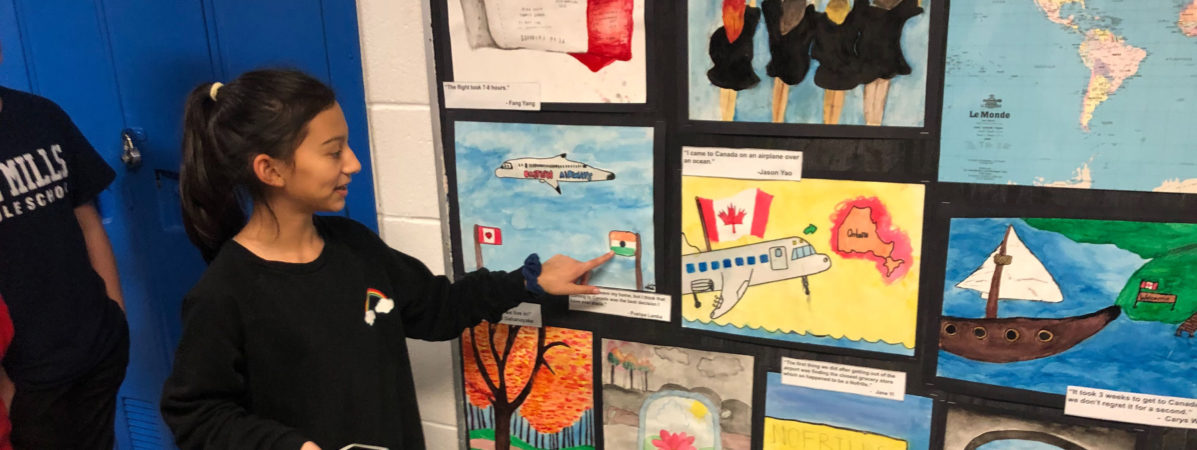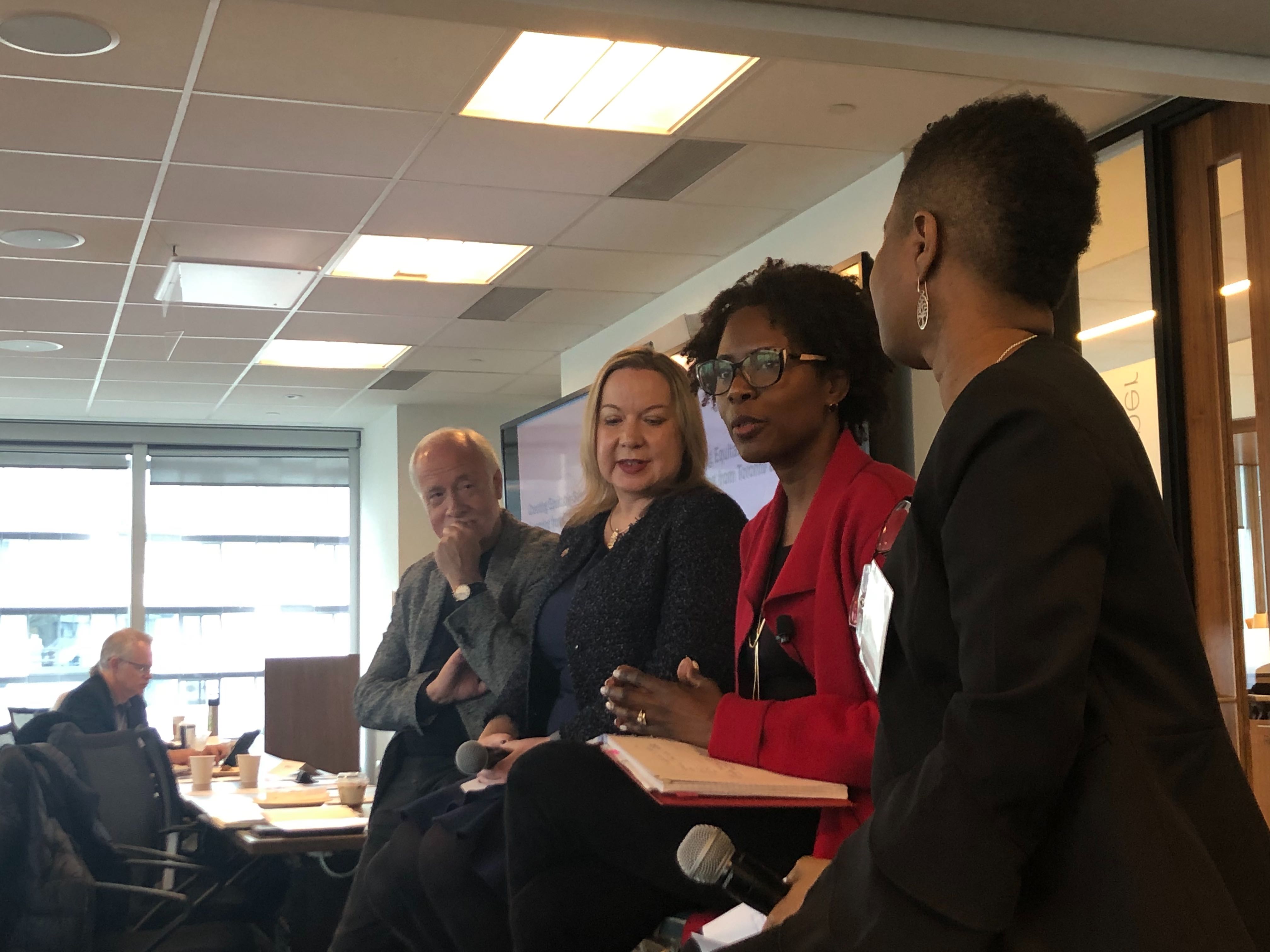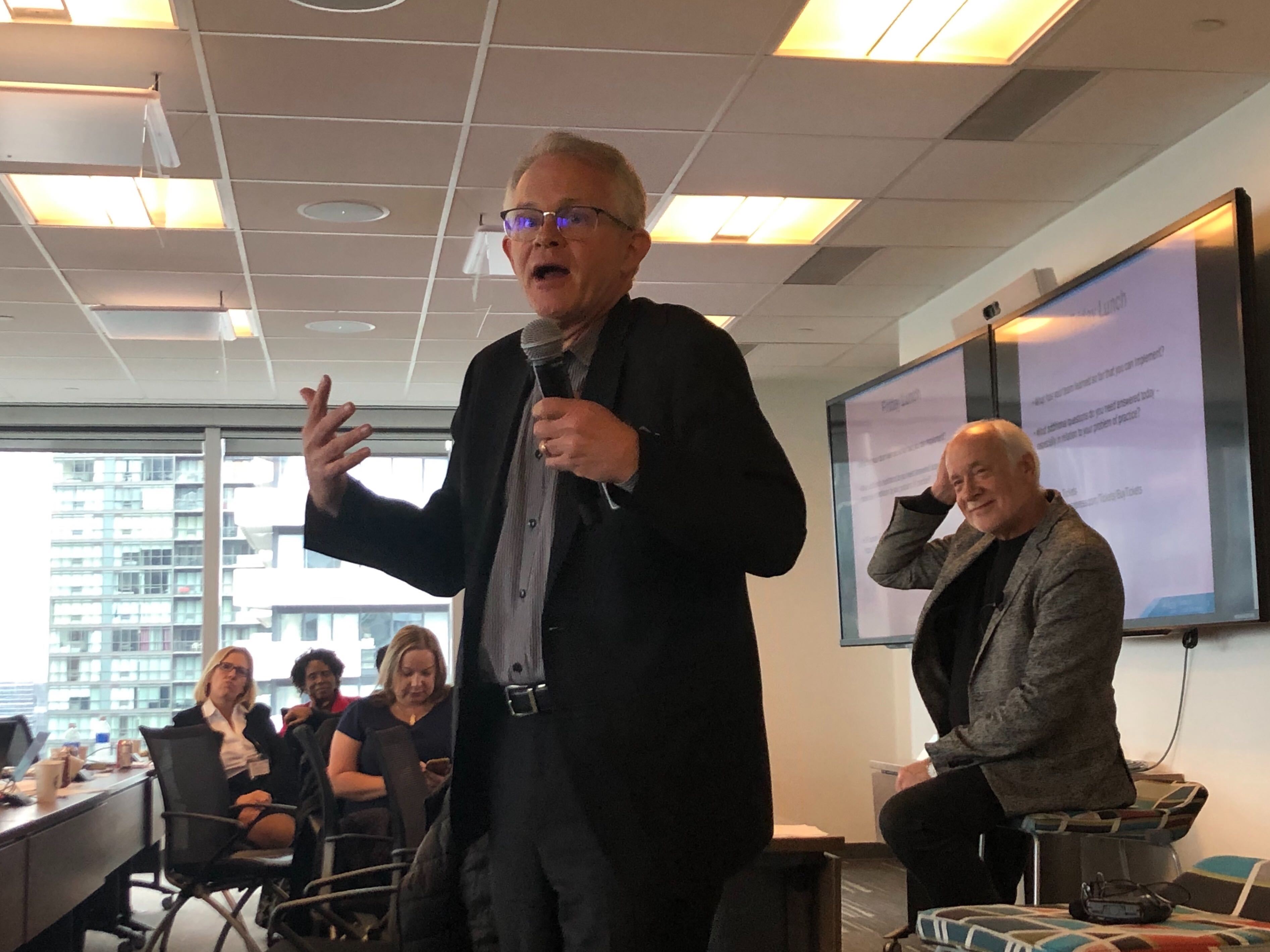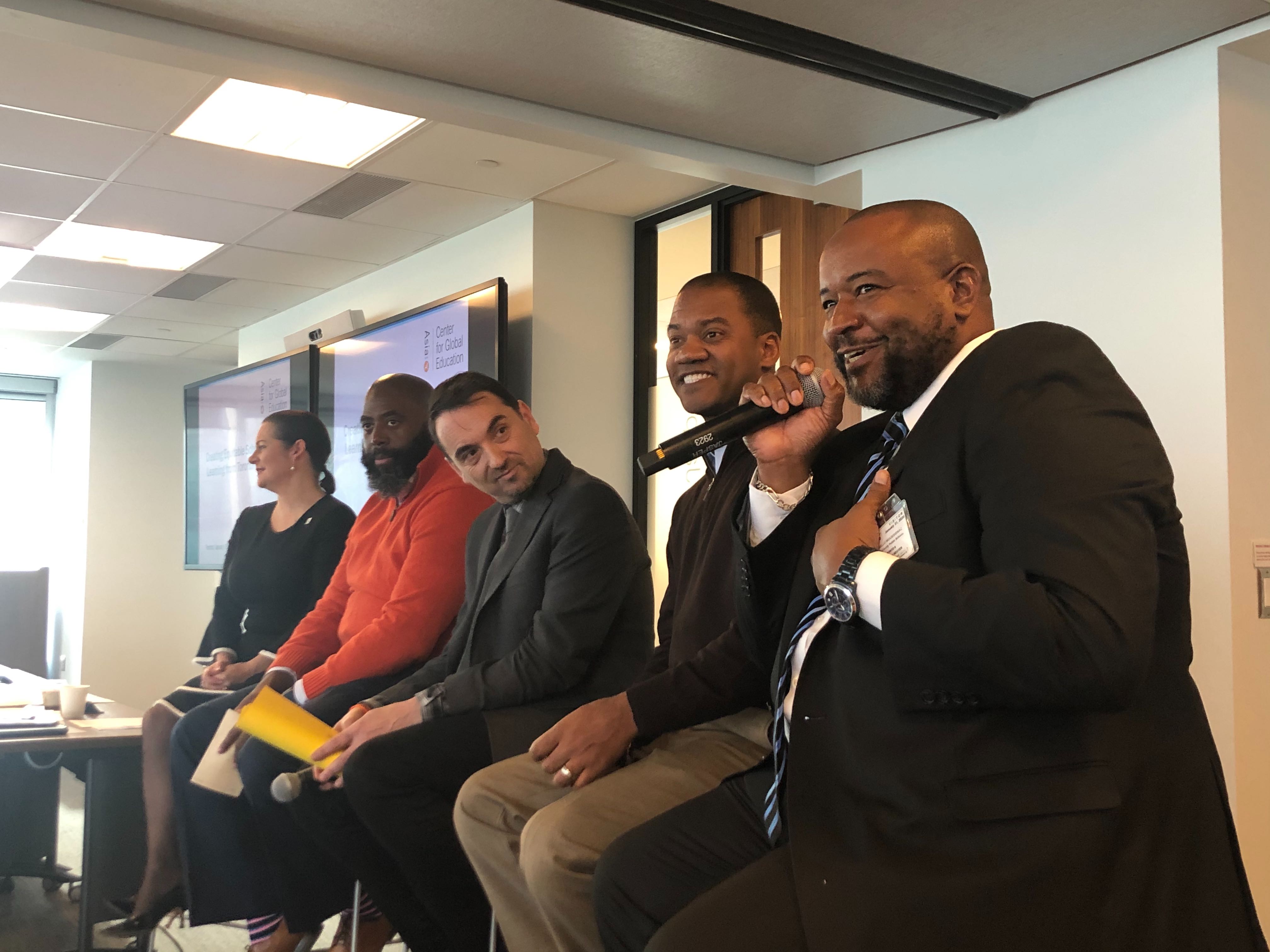
Often, the most powerful learning happens when students explore different perspectives, step outside of their typical environments, and are exposed to new ways of doing and thinking. These experiences provide a framework for learning that uses surroundings, communities, and cultures to invite inquiry, investigate biases, and deepen understanding. What happens when this same approach is applied to school districts?
In partnership with the Center for Global Education at Asia Society, the League of Innovative Schools has launched innovation study tours—a learning opportunity focused on deeper learning and equity. Similar to the League’s cohorts, innovation study tours focus on addressing challenges and sharing best practices and resources. However, what makes study tours distinctive is that they can occur within the context of international learning ecosystems.
“Schools exist in very different geographical, political, social, economic contexts, but deep truths can be transferred and applied,” said Dr. Anthony Jackson, vice president for the Center for Global Education at Asia Society.
Participating districts identify high-priority problems of practice, observe the expertise of other districts and countries, and ultimately develop informed, equity-centered solutions to adapt and implement in their own districts. Borrowing from the objective of the Global Cities Education Network (GCEN), an initiative of the Center for Global Education at Asia Society, study tours are intended as a mechanism for district leaders, educators, and decision-makers to collaboratively imagine, discuss, design, and deliver internationally informed and tested solutions.
For the inaugural study tour, participating districts attended three webinars presented by the Toronto District School Board (TDSB) that culminated in a meeting in Toronto, Ontario, on January 30–31. Through the generous support of the William and Flora Hewlett Foundation and the National Public Education Fund, nine League districts traveled to Toronto:
Over two days, leaders from League districts representing 50 percent or greater black and brown students, 50 percent or greater free and reduced price meals rate, or urban regions dove into Ontario’s education landscape to benchmark the province’s practices against their own priorities and problems of practice around creating equitable school systems.

In a panel discussion about equity training and professional development for teachers and leaders, Associate Director of Equity, Well-Being, Early Years and School Improvement for TDSB Colleen Russell-Rawlins noted that coaches do not necessarily disrupt a culture of inequity: “We must address the identity of the coach, name that, and reframe the coach/mentee relationship to two teaching professionals collaborating and learning together.”
Through school visits and panel discussions with TDSB officials, district leaders explored local policies and systems, the use of data for equity, and professional development and training for teachers and leaders, keeping an eye and ear toward what they could bring back to their own school communities.
Over the past two years, TDSB has taken significant steps to shift their culture of equity to better support all students to be their authentic selves. The beginning of this process required interrupting personal and systemic biases and adopting intentional language—for example, shifting from describing students as “marginalized” or “at risk” to “underserved,” because the onus is placed on school officials, educators, and decision-makers to move the needle. Furthermore, TDSB has moved beyond initial conversations of diversity and inclusion to address microaggressions, anti-oppression, anti-racism—specifically, anti-black racism—and confront how their own identities and processes might be implicated in data. Working in partnership with the many diverse communities they serve, TDSB has developed a multi-year strategic plan that hinges student and teacher improvement, achievement, and well-being on a commitment to equity.

Toronto District School Board Director of Education Dr. John Malloy challenged district leaders to consider: “Who am I protecting?” The answer should always be students.
This culture of equity and accountability permeates throughout the district and was evident in the six local schools the cohort visited, each addressing a different lever for equity:
On the final day of the study tour, Asia Society invited five League districts to share their strategies for addressing equity challenges and opportunities in their districts.
Dr. Susan Enfield, superintendent of Highline Public Schools, discussed the year-long leadership training and stakeholder sessions on definitions of equity that she and her team lead in their district. Dr. Baron Davis, superintendent of Richland County School District Two, spoke about the district’s Premier 100 Conference and program, a concerted effort to support and retain male teachers of color, ultimately leading to improved outcomes for students of color. Representing Compton Unified School District, Mario Marcos shared the intentional work the district is doing around restorative justice and trauma-informed schools. Marlon Styles, superintendent of Middletown City School District, shared how their district is removing non-cognitive barriers to education and supporting students and families through wrap-around services like their school-based wellness center and meal truck. Finally, representing the School Board of Broward County, Florida, Carmello Moussignac spoke about the district’s various equity-driven initiatives, including their modern community learning centers, tech- and literacy-based partnerships with families, and training to spot, address, and support student trauma.

Leaders from five League of Innovative Schools districts presented their strategies for addressing equity challenges in their school communities. (L to R: Susan Enfield, Baron Davis, Mario Marcos, Marlon Styles, Carmello Moussignac)
In the United States and abroad, school systems are at the center of change in policy and practice. Through innovation study tours, the League of Innovative Schools is rethinking and addressing the various knowledge, skills, and supports students need to achieve their most richly imagined futures. In April, this group will reconvene to share progress updates on their adoption of equity strategies for their districts, with the hope that this exposure to new practices and resources will support implementation and future innovation. The ultimate goal considers equity not as simply a strategy, but rather embedded in culture, priorities, practices, and all outcomes.
“Don’t make your equity work a trend. That facade will fade, because the work is hard, and the lift is heavy,” said Dr. Baron Davis. “Start with sincerity. Start with issues that you see in your community that you want to address.”
Connect with the League of Innovative Schools on Twitter at @DPLeague and follow the #DPLIS hashtag to stay updated on network updates and future study tours.